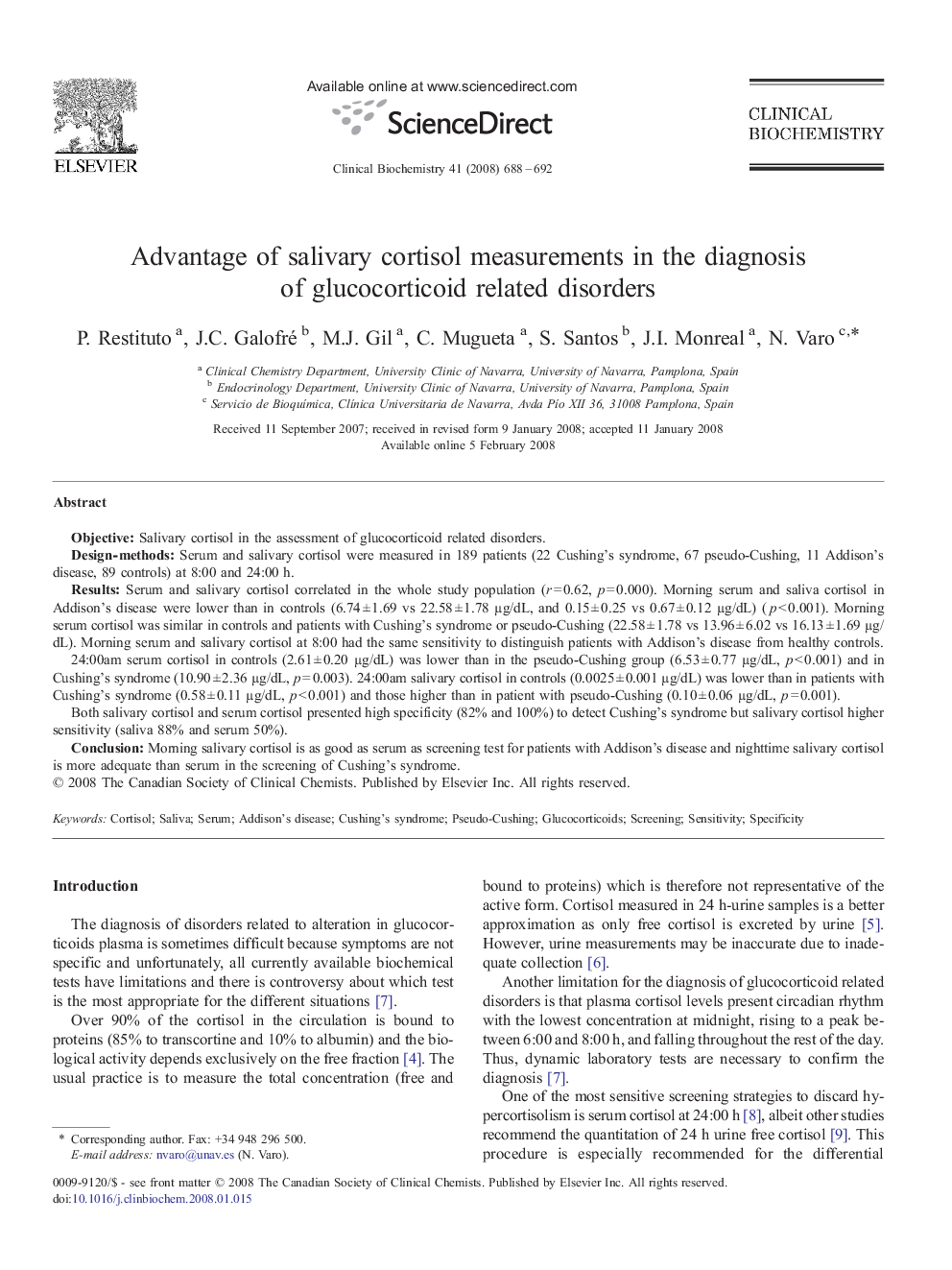| Article ID | Journal | Published Year | Pages | File Type |
|---|---|---|---|---|
| 1971560 | Clinical Biochemistry | 2008 | 5 Pages |
ObjectiveSalivary cortisol in the assessment of glucocorticoid related disorders.Design-methodsSerum and salivary cortisol were measured in 189 patients (22 Cushing's syndrome, 67 pseudo-Cushing, 11 Addison's disease, 89 controls) at 8:00 and 24:00 h.ResultsSerum and salivary cortisol correlated in the whole study population (r = 0.62, p = 0.000). Morning serum and saliva cortisol in Addison's disease were lower than in controls (6.74 ± 1.69 vs 22.58 ± 1.78 µg/dL, and 0.15 ± 0.25 vs 0.67 ± 0.12 µg/dL) (p < 0.001). Morning serum cortisol was similar in controls and patients with Cushing's syndrome or pseudo-Cushing (22.58 ± 1.78 vs 13.96 ± 6.02 vs 16.13 ± 1.69 µg/dL). Morning serum and salivary cortisol at 8:00 had the same sensitivity to distinguish patients with Addison's disease from healthy controls.24:00am serum cortisol in controls (2.61 ± 0.20 µg/dL) was lower than in the pseudo-Cushing group (6.53 ± 0.77 µg/dL, p < 0.001) and in Cushing's syndrome (10.90 ± 2.36 µg/dL, p = 0.003). 24:00am salivary cortisol in controls (0.0025 ± 0.001 µg/dL) was lower than in patients with Cushing's syndrome (0.58 ± 0.11 µg/dL, p < 0.001) and those higher than in patient with pseudo-Cushing (0.10 ± 0.06 µg/dL, p = 0.001).Both salivary cortisol and serum cortisol presented high specificity (82% and 100%) to detect Cushing's syndrome but salivary cortisol higher sensitivity (saliva 88% and serum 50%).ConclusionMorning salivary cortisol is as good as serum as screening test for patients with Addison's disease and nighttime salivary cortisol is more adequate than serum in the screening of Cushing's syndrome.
